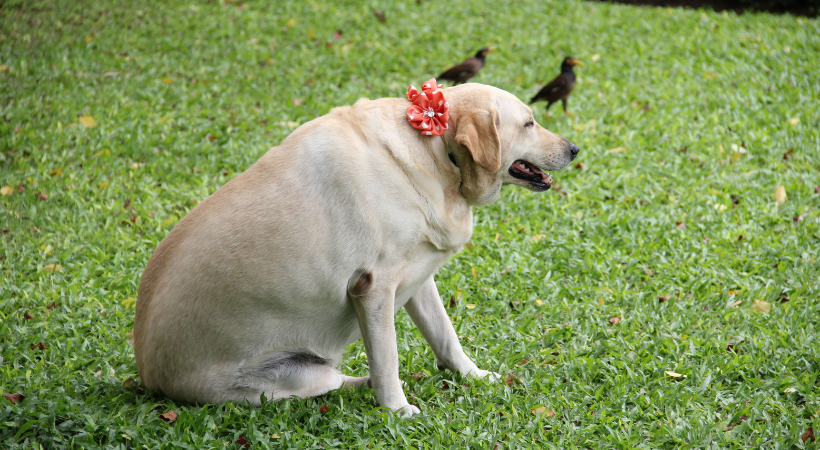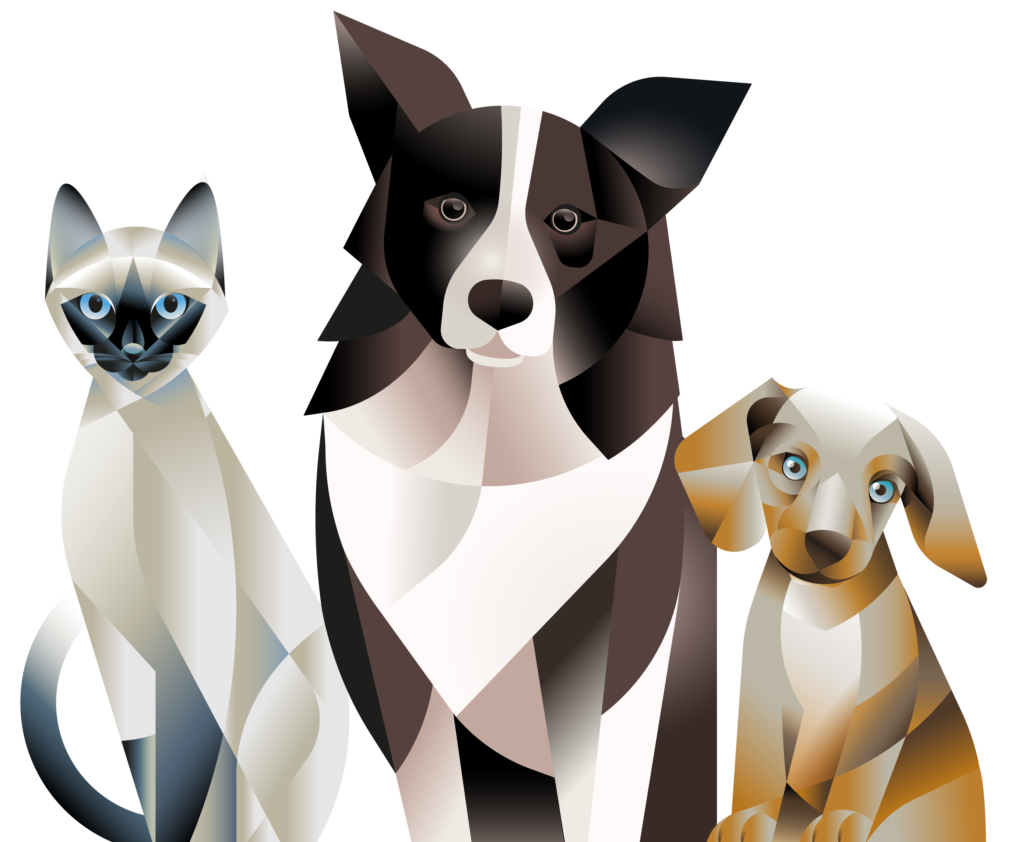Neutered and Overweight Dog: What Diet Should You Choose?
Canine obesity is one of the most common problems among neutered dogs, and also one of those that most affects animal well-being. Choosing the right food for neutered dogs is essential to prevent and avoid this risky condition. Read this article to discover the best diet specifically for dogs.
Impact of Neutering on a Dog’s Metabolism
Neutering a dog is the choice of those who care about their four-legged friend’s health and also wish to contribute to the fight against stray animals.
However, to ensure that it does not have negative repercussions on your dog’s quality of life, it’s important to understand the hormonal changes that occur after neutering:
- Reduction in sex hormones (a 60–70% drop in testosterone/estrogens);
- Alteration of basal metabolism (a 25–30% decrease in energy requirements);
- Changes in appetite (a 40% increase in hunger sensation, altered satiety mechanisms);
- Greater tendency to accumulate fat.
Risks of Post-Neutering Overweight in Dogs
Overweight in neutered dogs should be prevented through proper nutrition and sufficient physical activity, as it is associated with serious diseases:
- Joint problems (osteoarthritis, hip dysplasia, cruciate ligament injuries, herniated discs);
- Metabolic disorders (diabetes mellitus, insulin resistance, thyroid disorders, dyslipidemia);
- Cardiovascular problems (hypertension, heart failure, respiratory fatigue, reduced exercise tolerance);
- Organ complications (liver disease, pancreatic problems, gastrointestinal disorders, kidney impairment).
The Best Food for Medium and Large Neutered Dogs: Composition
The ideal composition of the best food for neutered dogs—especially medium and large breeds, which are more prone to being overweight—should include: a good amount of high-quality protein (27–32%) with high biological value; selected fats (<15%); low-glycemic carbohydrates (35–40%); fiber (6–8%); and prebiotics to support digestive activity.
Vitamins for dogs are also important: vitamin A between 15,000–20,000 IU/kg, vitamin D3 between 1,200–2,000 IU/kg, vitamin E between 200–600 IU/kg, and vitamin C between 40–200 mg/kg. In particular, vitamin A supports vision and tissue maintenance, vitamin E has antioxidant properties, and vitamin D3 promotes calcium absorption and bone health.
Kibble for neutered dogs should also contain 0.5–3% Omega-3 (EPA: 1.2–1.5% and DHA: 0.8–1%) as well as 2–2.5% Omega-6, in a 4:1 ratio with Omega-3. It should be gluten-free, corn-free, and soy-free.
Specific Support for Common Issues
Neutered dogs tend to share certain health concerns. Here are the nutrients that may help prevent or support the management of specific conditions.
Joint and Mobility Health
- Chondroitin (1000 mg/kg)
- Glucosamine (1200 mg/kg)
- MSM (800 mg/kg)
- Hydrolyzed collagen 1.5%
- Pomegranate
- Oily fish
Digestive Issues
- Prebiotics (0.5–1%)
- Probiotics (min. 1×10^7 CFU/kg)
- Digestive enzymes
- Olive oil
Immune System Problems
- Spirulina algae
- Citrus fruits
How to Help a Neutered, Overweight Dog Lose Weight
To help a neutered dog lose weight in the right way, it is essential to seek the advice of a veterinarian specialized in canine nutrition, as they are the only one able to customize the feeding plan.
As a general guideline, veterinarians—for these specific cases—recommend low-calorie kibble (3200–3400 kcal/kg) that uses a single protein source and only natural ingredients. All flavor enhancers that may spoil the dog’s taste perception and appetite should be avoided.
They also advise engaging the dog in aerobic physical activity (60 minutes of walking, divided into 2–3 sessions) and play-based exercise (30 minutes of active play and agility training)—provided, of course, that the dog’s health allows it.
If the diet is properly tailored to the dog’s needs, the first results can be seen within just 2–3 weeks.
How to Manage Hunger in a Neutered Dog
Hormonal changes, boredom, and a sedentary lifestyle can increase hunger in neutered dogs. To address or prevent the problem, it is best to divide the daily food ration into at least three meals, enrich the environment with stimuli, and follow a regular routine.
Does your four-legged friend have a dull coat? Read our guide to keep their coat shiny and their skin healthy.
Best Kibble for Neutered and Overweight Dogs
Naxos Sterilight Medium/Maxi – free from artificial colors and preservatives – is a single-protein formula with oily fish and pomegranate, ideal for feeding neutered and overweight dogs.
It supports joint health, weight control, and overall well-being: pomegranate is rich in antioxidants (polyphenols 100 mg/kg, punicalagins 50 mg/kg, anthocyanins 30 mg/kg), and oily fish provides organic selenium (0.5 mg/kg), natural vitamin E (400 IU/kg), and astaxanthin (5 mg/kg), a powerful natural anti-inflammatory.
Sterilight Medium/Maxi with oily fish also includes three valuable superfoods: Sicilian citrus fruits, which support the dog’s well-being; spirulina algae, which boosts the immune system; prickly pear, which promotes good digestion; plus yucca schidigera and L-Carnitine (300 mg), which provide a pleasant sense of satiety and accelerate metabolism.
All Naxos ingredients are natural, cruelty-free, made in Italy, and sourced through a short supply chain—to give your furry friend the very best. Try them now… discover where to buy them online or near you.


